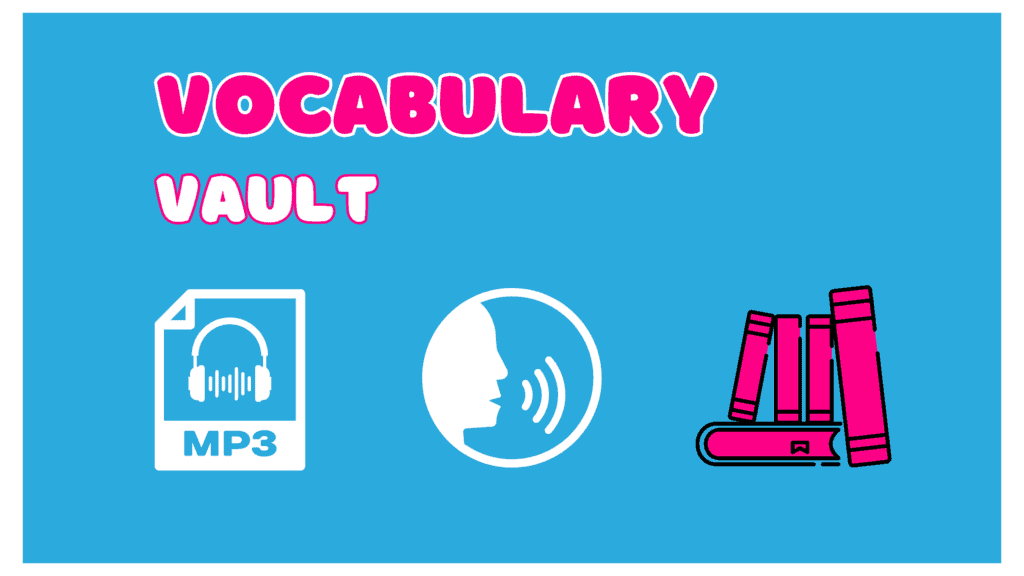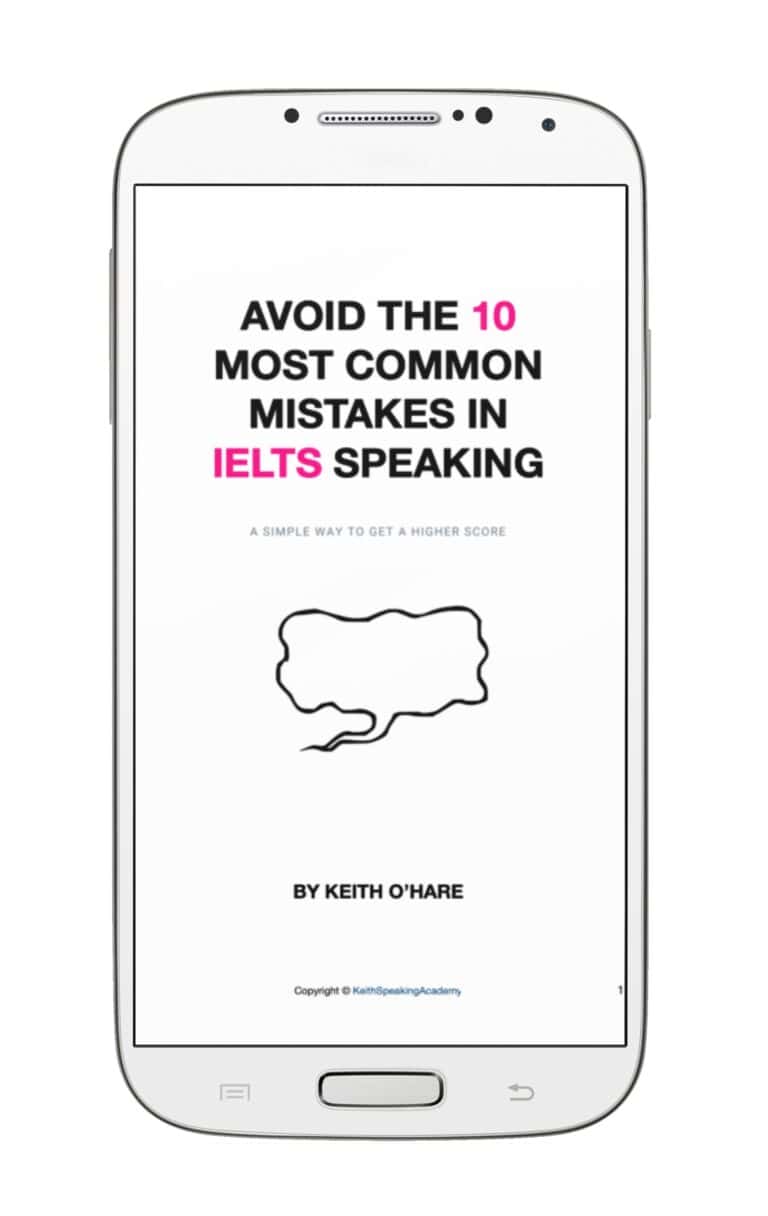IELTS Speaking Lesson about Shopping
👇 Take this lesson with you! 👇
Table of Contents
Warm up!
Fill in the gap with one word
- I like to go shopping ______ clothes in the sales
- I don’t have any money, I am just ____ shopping
- I haven’t made many ______ this week. Tom, the Sales manager is not going to be happy!
Show / Hide answers
- I like to go shopping for clothes in the sales
- I don’t have any money, I am just window shopping
- I haven’t made many sales this week. Tom, the Sales manager is not going to be happy!
IELTS Speaking vocabulary: Shopping
Nouns
A shop (n.) = A store (n.) (US)
- A department store
- A shopping mall (US)
- A shopping centre (UK)
- A pop-up shop = A space leased (rented) for days or weeks to sale products
Read more about pop-up shops here:
https://www.thestorefront.com/mag/what-exactly-is-a-pop-up-shop/
- A one-stop shop = A shop providing different products or services in one place
- A high-end shop = selling expensive stuff
- An up-market shop = selling expensive stuff
- A retail shop = a shop selling to individual customers (B to C)
- A wholesale shop = a shop selling to businesses (B to B)
A sale (n)
1) Give something in exchange for money
How many sales have you made today?
2) Goods are sold at a lower price
The store is having a mid-season sale
There is a sale on this week in this shop
Nike are having a sale this week
- A clearance sale = a sale to clear stocks (everything must go!)
- Everything is reduced to clear
- A liquidation sale
- A winter sale
- An end-of-season sale
A sale is an event
A discount is an amount of money
Items are on sale (= available or at a lower price)
Shirts are not on sale in this shop (not available), we only sell trousers.
These shirts are on sale this week only (lower price).
Verbs
- To shop (v.)
- To shop for clothes / food
- To go shopping for clothes / food
- To shop around = to look for the best price
- To do the shopping = to buy food
- To do the weekly shop = to buy food for the whole week
- To window shop = to look but without buying anything
To buy (v.)
- To purchase (formal)
- To procure (formal – mainly used when companies buy things)
- To pick up (informal)
- To snap up (buy something quickly and cheap)
- To get hold of…
A bargain (n.) = something at a good price (good value for money)
To bargain (v.) = to negotiate (the price)

The pros and cons of consumerism
What is consumerism?
- The protection of consumer rights.
- The preoccupation with buying more and more.
In this section, we are just focusing on the second definition where people are obsessed with buying new things.
The Advantages
Access
- We can follow the latest fashions and fads.
- We can buy items from all over the world.
- We have a wider choice of products to buy.
- We are often spoilt for choice (= there is too much choice)
- Technology has made consumerism so easy, we can buy stuff at the click of a button.
Therapy
- Buying something new is a kind of therapy (often called “retail therapy”), it can cheer us up (= make us happy) no end (=a lot)
Growth
- More consumption can lead to economic growth
The Disadvantages
Values
- A consumer society can lead to a distortion of values, where people value material things rather than relationships.
- Obsession with materialism
- Mental health problems
Addiction
- We can become addicted to shopping and only find happiness in the next ‘hit’ or purchase
Debt (/det/)
- To be in debt = to owe money
With the influence of marketing, people end up living beyond their means as they try to keep up with the Joneses
- To live beyond your means = spend more than you earn
- To keep up with the Joneses = to try to have a lifestyle as good as your neighbours
Environment
Excessive production has a negative impact on the environment, mainly because industries like the clothes industry use non-renewable resources
- We will have resource depletion (=have no resources left)
- A wasteful lifestyle
- Too much waste
- The ‘throw away culture’
There is a big pushback now against consumerism and towards minimalism, especially amongst younger people.
Read more about the pros and cons of consumerism here:
IELTS Topic: Consumerism
Watch and listen to the passage below and answer this question.
- How many advantages and how many disadvantages are mentioned?
- Note any useful collocations or phrases
Hide / Show answers
3 Advantages and 5 Disadvantages
Consumerism.
Well, yes, that’s a tricky topic these days, especially with this ever growing divide between the haves and the have-nots.
I think, generally speaking, consumerism, yes, it can be good.
It can lead to a wider, an access to a wider variety of goods and products. [Advantage. 1]
We can buy things from all around the world nowadays and technology facilitates that, buying stuff at the click of a button.
I think also, you know, consumerism, it’s a kind of therapy. I think what people call retail therapy. [Advantage. 2]
So if you are feeling a bit down in the dumps (=sad), you can go out and buy stuff and it can cheer you up no end.
So that’s a positive side. Also, many people argue that as we supply more, we demand more, and this is a growing cycle, which leads to economic growth and prosperity for many, many people. [Advantage. 3]
Of course, there are the downsides. As I mentioned before, people who benefit from consumerism are often those who already have money they can spend.
So there can be a growing divide between the rich and the poor, which can be negative. [Disadvantage.1]
I think also nowadays with more and more consumerism, people’s values are changing. People start to value material objects rather than relationships and people, and obviously this is not a good way morally for us to go in the future. [Disadvantage.2]
As people buy more, they almost become addicted to shopping, right, and to getting the next hit or purchase.
Obviously, that’s not a good thing. [Disadvantage.3]
Another downside, I think, is a lot of people, with all the marketing that goes on, people are encouraged to buy more, to spend more, and so a lot of people live beyond their means. [Disadvantage.4]
They’re spending money they haven’t got, so they take out credit, they get into debt, and of course this leads to more stress and huge health problems for many, many people.
Finally, I would also mention the issue of the environment with consumerism, in particular some key industries.
I’m thinking in particular of the fashion, clothes industry and maybe the food industry.
You know, they’re renowned for using non-renewable resources and so the more they produce, the more negative impact they’re having on the environment and so that’s a key issue nowadays as well. [Disadvantage.5]
Idioms about shopping
- To cost an arm and a leg = to be expensive
My new bike cost (me) an arm and a leg
- To be dead expensive = to be very expensive
The new MacBook is dead expensive
- To be a rip-off = to be too expensive and not worth it
100 dollars for a T-shirt is a complete rip-off!
- To pay (way) over the odds = To pay too much
200 dollars! You paid way over the odds for those trousers!
- To pay through the nose = To pay too much
She paid through the nose for her wedding dress.
3 idioms meaning to be very cheap
- To be going for a song
- To be dirt cheap
- To be cheap as chips
I’m going to buy these shoes whilst they are on sale, they are going for a song
- To talk shop = to talk about your work
He is so boring, he is always talking shop at parties.
- To splash out on (something) = to spend a lot of money on (something)
I like to splash out on new clothes in the Spring sales
Pronunciation Files For Vocabulary From My Best Live Lessons
Use Words EASILY in English Conversations!
More Free Lessons
If you liked this lesson, leave a comment below!
There are more lessons you can follow in the links below too.
SPORTS in IELTS Speaking Vocabulary you need to talk about doing and watching sports, as well as idioms related to this topic.
RELAXING in IELTS Speaking How to talk about relaxing in your free time and during your holiday.
MOVIES in IELTS Speaking. Learn the essential vocabulary for this topic, as well as how to talk about the different types of film.
MONEY in IELTS Speaking Learn how to talk about earning, saving and spending money.


